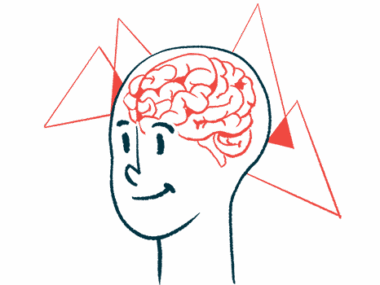Inventor of device for hand mobility wins Ali Humanitarian Award
25-year-old began developing Guiding Hands while at McMaster University
Written by |

Lianna Genovese, the 25-year-old founder of Imaginable Solutions and the inventor of Guided Hands, a device that helps individuals with limited hand mobility, was recognized with the 2024 Muhammad Ali Humanitarian Award.
Various conditions can limit a person’s ability to write, draw, dress themselves, or use technology, including Parkinson’s disease, cerebral palsy, and arthritis or other conditions affecting the joints.
Launched in 2013, the award aims to honor the work and guiding principles of Muhammad Ali, an American boxer and activist. Announced annually, it spotlights one “seasoned” humanitarian and six young adults up to age 30, all working to advance a community’s needs and contributing to positive social change. Each embrace Ali’s six core principles, the Ali Center states: confidence, conviction, dedication, giving, respect, and spirituality.
“This recognition helps to bring awareness and advocate for the disability community. The more our product is known, the more people we can help,” Genovese said in a company press release. “The more our product is known, the more people we can help.”
Guiding Hands supports skills needed to write, paint, use technology
“It’s an honor to be recognized and to celebrate Muhammad Ali’s incredible legacy as an athlete, artist, activist, and humanitarian,” she added.
Fine motor skills like those of the hands are essential for many everyday tasks, including writing, typing, drawing, eating, working with a computer mouse or joystick, and getting dressed. Neurological disorders like Parkinson’s, with motor symptoms such as tremors and dystonia (abnormal muscle tone), can make it hard for people to perform such tasks independently.
Guided Hands is designed to assist by promoting guided hand movements. The device comes with a utensil holder compatible with pens, pencils, paintbrushes, and styluses, and an ergonomic wrist rest with an adjustable strap.
It has a sliding system that encourages the use of the shoulders and their gross motor skills, and it can be fitted to whichever hand a person prefers. Three hand pieces also are available for differing levels of hand mobility: a spherical piece for minimal grasping efforts, a flat piece for people with muscle tightness that allows the fingers to curl, and a joystick for people who struggle with hand movements when the palms are facing downward.
Genovese conceived of the device to help an artist friend with cerebral palsy
An initial prototype was developed by Genovese in 2019, when she was a first-year biomedical and mechanical engineering student at McMaster University in Ontario, Canada. There she met Elissa, an artist with cerebral palsy who had lost her ability to paint.
“It took two years of market research and working closely with the disability community, occupational therapists, and rehabilitation specialists to finalize the design of Guided Hands,” Genovese said. “Designing for the disability community requires compassion, deep listening, and patience. The process requires care and cannot be rushed.”
At the Nov. 9 honors ceremony, held at the Ali Center in Louisville, Kentucky, Imaginable Solutions announced the opening of a sponsorship program to give a Guided Hands device to families facing financial difficulties. The company currently sets aside a portion of each device sold to award one to a person in need, and it reports that more than 60 devices have been offered so far under this program.
The first went to a 2-year-old with cerebral palsy, allowing him to draw alongside his twin brother.
“When I learned that Mr. Ali was an artist and lost his ability to draw after his diagnosis with Parkinson’s — I was deeply touched. Self-expression is beautiful and also a human right, one that should be accessible to everyone,” Genovese said. “Muhammad Ali once said, ‘Service to others is the rent you pay for your room here on Earth.’ I intend to keep paying that rent.”



